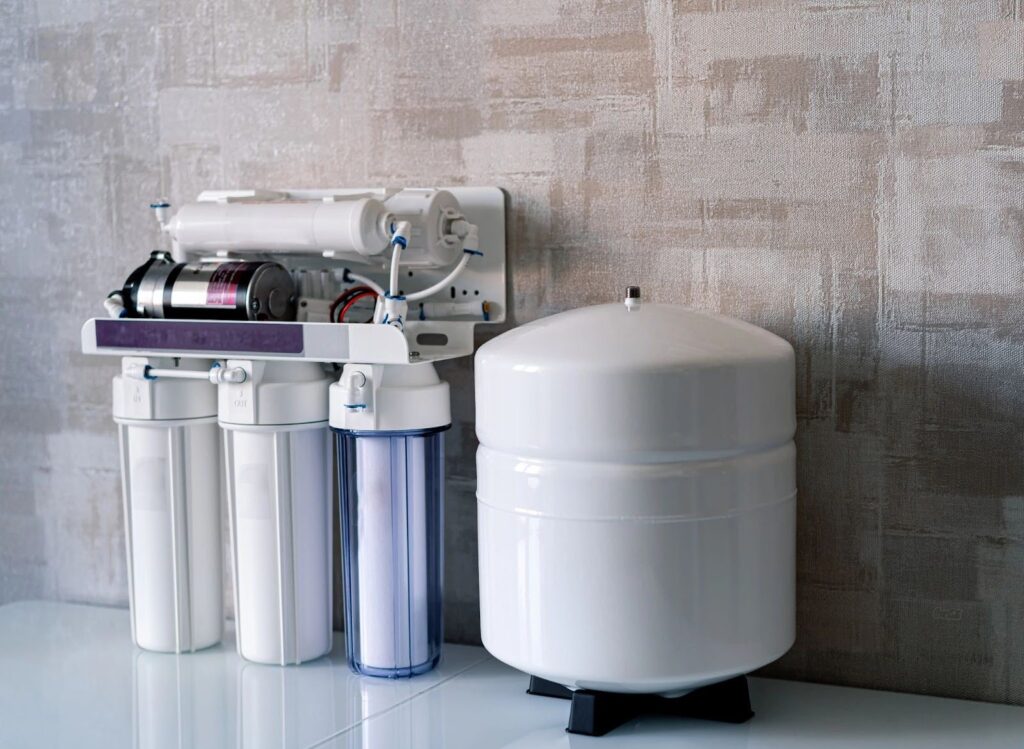In today’s world, where health and wellness have become a top priority, the quality of your drinking water is something you simply can’t overlook. Clean, safe water is the foundation of a healthy lifestyle-but not every home water supply delivers the purity you’d expect. From strange tastes and odours to invisible contaminants, many households find themselves questioning what’s really coming out of their taps.
That’s where water filter systems come in. Whether you’re looking for something compact for your kitchen or a whole-house solution, the right filter can transform your water supply into something fresher, healthier, and safer. But before you invest, it’s worth pausing to ask the smart questions before installing a filter. Doing so ensures the system you choose isn’t just a quick fix, but the best fit for your home, lifestyle, and long-term needs.
This guide walks you through the key questions to ask-and what to consider-so you can shop with confidence and end up with a water filtration system that truly delivers.
What Type of Water Filtration System Do You Need?
Choosing the right water filter system begins with understanding the different types available, each catering to specific needs and situations.
- Whole-House Systems: As the term suggests, whole-house systems are connected to the main water supply, ensuring that all taps in the home deliver filtered water. These systems are particularly beneficial for households concerned about contaminants that affect skin and hair, especially when bathing or washing clothes.
- Under-Sink Filters: These systems are discreetly installed under the kitchen sink, treating water at a specific point of use. They effectively remove contaminants from the drinking and cooking water supply without altering the aesthetics of the kitchen space.
- Countertop Filters: Countertop filters are simple to install and provide an easy solution for improving water quality. They connect directly to the faucet, treating water as it is used. This makes them a versatile option for renters or those seeking a portable solution. Popular gravity-fed systems such as the Big Berkey Phoenix Filter are also favoured for their portability and strong contaminant reduction capabilities without requiring plumbing modifications.
- Faucet-Mounted Filters: By attaching directly to the faucet, these filters are ideal for quick and effective filtration. They are convenient and typically easy to install and replace.
Each type of filter varies in its ability to remove specific contaminants. For instance, whole-house systems often excel in removing sediment, chlorine, and other impurities from all water entering the home. On the other hand, under-sink and countertop systems might target specific contaminants like lead, volatile organic compounds (VOCs), and bacteria.
Understanding one’s water quality is crucial in selecting the right system. Homeowners are encouraged to test their water supply to determine which contaminants are present and choose a filter system that efficiently addresses those impurities. Moreover, factors like household size and water usage patterns play an essential role in determining the most fitting style for a family. A household with significant water use might benefit more from a whole-house system, while smaller families or individuals may find under-sink or countertop filters more than adequate.
What Contaminants Are Present in Your Water Supply?
Determining the presence of contaminants is a pivotal step in selecting a water filter system. Various contaminants can lurk in the water supply, each posing potential health risks.
Common water contaminants include:
- Microbial pathogens such as bacteria, viruses, and parasites.
- Chemical compounds such as chlorine, pesticides, and herbicides.
- Heavy metals like lead, mercury, and arsenic.
- Sediments and impurities that affect taste, odour, and clarity.
The health effects of these contaminants can range from mild gastrointestinal distress to severe illnesses, making their identification and removal paramount.
To determine what’s in their water, consumers can access local water quality reports provided by water suppliers. These reports often detail the types of pollutants present and whether their levels exceed regulatory safety standards. Additionally, home water testing kits offer a straightforward method to discover what contaminants may be sneaking through the pipes.
Once the specific contaminants are identified, selecting a filter system with the appropriate technology becomes much easier. For example, activated carbon filters are well-regarded for their ability to remove chlorine, VOCs, and some pesticides, while reverse osmosis systems are effective against heavy metals and microbial pathogens.
Moreover, understanding filtration certifications and standards, such as those from NSF/ANSI, ensures the filter system’s claims are verified. Look for products with recognisable certifications, as these signify the system has been rigorously tested and proven to remove the contaminants it purports to address.
How Much Maintenance Does the System Require?
Every water filtration system comes with its own set of maintenance needs, a factor that should weigh heavily in decision-making. Neglecting maintenance can diminish the effectiveness of the system and, consequently, the water quality it delivers.
Typically, filter systems require regular maintenance that includes:
- Replacing filters: Depending on usage and water quality, filters generally need replacement every six months to one year.
- System cleaning: Some systems occasionally require thorough cleaning to maintain operational efficiency.
- Routine inspections: Checking for leaks or other issues can preempt more significant problems down the line.
The ease of maintenance is an important consideration. Systems that are difficult to maintain may lead to neglect, compromising the water quality and longevity of the filter. Additionally, cost considerations play a role, as replacement parts and their availability can affect the ongoing expense of maintaining a high-quality water filtration system.
Homeowners need to establish a regular maintenance schedule to ensure the system operates at its best. Many systems come with indicator lights or other alerts to signal when maintenance actions need to be undertaken, simplifying the process.
What is Your Budget for a Water Filter System?
Budget considerations cannot be overlooked when purchasing a water filter system. While the promise of clean, safe water is invaluable, the practicalities of cost must align with financial realities.
The cost spectrum for water filters is broad, with considerations including:
- Initial purchase price: This might range from modest sums for faucet-mounted systems to thousands of dollars for comprehensive whole-house systems.
- Long-term maintenance costs: Regular filter replacements, occasional repairs, and certain consumables should be factored into the long-term budget.
Understanding the balance between upfront costs and long-term benefits is vital. While a more expensive system may offer superior filtration capacity and better materials, the savings on health expenses and bottled water could offset the initial expense. Thus, setting a realistic budget aligned with household needs is advisable.
To maximise value, consumers should look for systems backed by robust warranties, which can mitigate the risk of additional costs should defects or wear occur. Seeking out discounts or value-for-money models that have lower operating costs without compromising on quality is always a smart investment strategy.
Does the Filter System Meet Your Home’s Space and Installation Needs?
Space and installation considerations are often overlooked but are crucial in ensuring a seamless integration of the filter system into the home.
Each type of system presents unique spatial requirements:
- Whole-house systems need ample space for installation, generally in a garage or basement near the home’s main water supply line.
- Under-sink filters need sufficient space under the kitchen counters and may require modifications to plumbing.
- Countertop and faucet-mounted filters require minimal space and are the simplest to install, often not requiring permanent alterations to the home.
The complexity of the installation process varies, too. While some systems, particularly countertop and faucet-mounted models, lend themselves to DIY installation, others may require professional help, especially those that involve modifications to plumbing.
Additionally, aesthetics play a role. The system should integrate harmoniously within home interiors without creating an eyesore. For renters or homeowners with restrictions on modifications, particular attention must be given to systems that don’t require permanent installation or plumbing changes.
Wrapping Up: Choose the Right Filter for Peace of Mind
Buying a water filter system is more than a household upgrade-it’s an investment in your family’s health and everyday comfort. The key to making the right choice lies in asking the smart questions before installing a filter:
- What type of system suits your lifestyle?
- Which contaminants are in your water?
- How much maintenance can you handle?
- What’s your realistic budget?
- Does it fit your home’s space and installation needs?
By working through these questions, you’ll narrow down your options and find a filter that’s effective, affordable, and easy to live with.
The right system doesn’t just improve water quality-it also gives you peace of mind with every glass, pot of coffee, or home-cooked meal. So before you make your purchase, take a little extra time to research, compare, and even consult a professional. The effort now will pay off in cleaner, safer water and healthier living for years to come.


